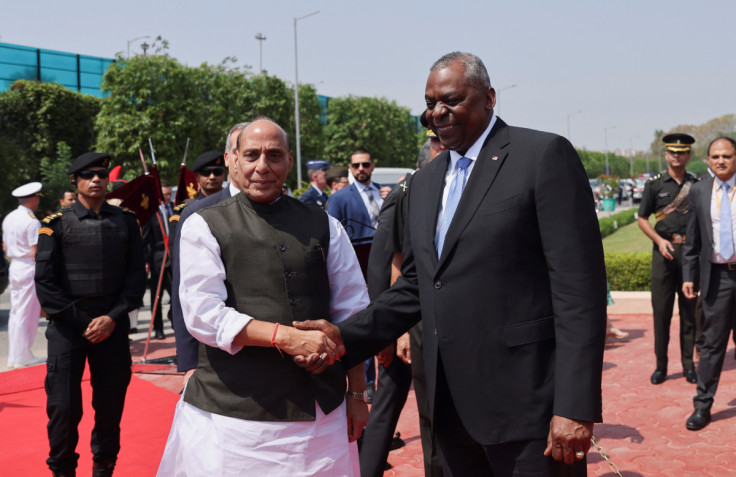US, India Agree Roadmap For Defense Industry Cooperation

India and the United States have concluded a roadmap for defense industry cooperation for the next few years, the Indian government said on Monday, a move expected to bolster New Delhi's defense manufacturing ambitions.
Washington is working to deepen ties with India and sees stronger military-to-military and technology ties with the world's largest democracy as a key counterweight to China's dominance in the region.
The roadmap was finalized at a meeting between visiting U.S. Defense Secretary Lloyd Austin and Indian Defense Minister Rajnath Singh.
The agreement comes weeks before Indian Prime Minister Narendra Modi visits Washington on June 22 for an official state visit and holds talks with President Joe Biden.
The roadmap is considered significant as Washington maintains strict controls over what domestic military technology can be shared or sold to other countries.
'NEW TECHNOLOGIES'
Talks between Singh and Austin had a "particular focus on identifying ways to strengthen industrial cooperation", the Indian Defense Ministry statement said.
"Both sides will identify opportunities for co-development of new technologies and co-production of existing and new systems and facilitate increased collaboration between defense start-up ecosystems of the two countries," it said.
"Towards these objectives, they concluded a roadmap for U.S.-India Defense Industrial Cooperation which shall guide the policy direction for the next few years."
India, the world's largest arms importer, depends on Russia for nearly half its military supplies, but has also increasingly diversified its sources to buy from the U.S., France and Israel, among others.
New Delhi also wants global defence manufacturers to partner with Indian companies and produce arms and military equipment in India for local consumption as well as exports.
The Biden administration is set to sign off on a deal that will allow General Electric Co to produce in India jet engines powering Indian military aircraft.
Austin said he and Singh had discussed ways to increase information sharing and new initiatives to improve maritime cooperation, including in the undersea domain.
The U.S.-India defense partnership matters, he told reporters, because "we face a rapidly changing world".
"We see bullying and coercion from the People's Republic of China, Russian aggression against Ukraine that seeks to redraw borders by force and threatens national sovereignty, as well as transnational challenges such as terrorism, climate change.
"So democracies must now rally together around not just our common interests but also our shared values," Austin said.
© Copyright Thomson Reuters 2024. All rights reserved.





















